Positions of Power: Portraits of marginalized NYC venue workers advocating for change
Culture — 23.03.21
Words & Photography: Rachel Cabitt
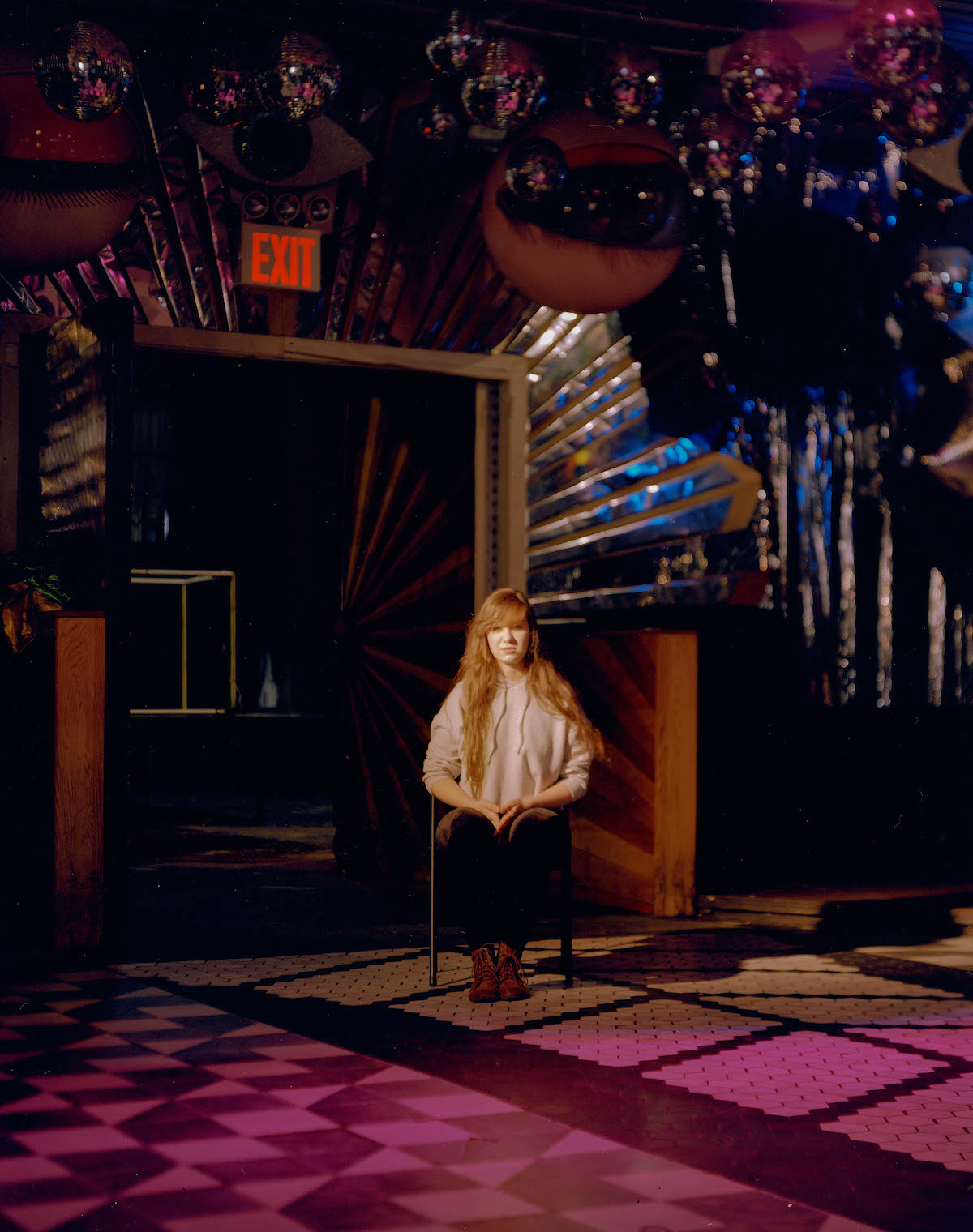 Gender inequality in the music industry isn’t just relevant at face value with the musicians and bands who create the music we listen to, but strongly present within the venues we go to experience music at.
Gender inequality in the music industry isn’t just relevant at face value with the musicians and bands who create the music we listen to, but strongly present within the venues we go to experience music at.
A significant portion of the annual audience who enters these spaces are of marginalized genders, female, trans and non-binary, those most at risk of experiencing misogyny, toxic behavior and assault. Since the rise of social media and the #MeToo movement in 2017, survivors have used their voices to share their experiences in large waves. In September of 2018, Chicago based band, The Orwells was outed by a grassroots collective of women via social media on accounts of sexual assault. In April 2019, the Brooklyn venue Elsewhere was caught under controversy when it was revealed that one of its former investors had a history of sexual assault. This past July, California based rock label Burger Records folded after an overwhelming amount of women shared their negative experiences of assault, toxic masculinity and grooming related to Burger artists and the culture cultivated around the label. These cases and patterns make us countlessly question how to uproot these deep-seated issues that plague our community.
In an attempt to answer the aforementioned, these portraits turn the spotlight on those who are statistically most at-risk to experience assault, toxic behavior, and misogyny within venues but have the power to stop it. From owners to managers, directors and bookers, each of these portraits includes the persons of marginalized genders in positions of power at these venues. Their presence in these spaces alone showcases their power, while simultaneously asking if strength in numbers could do more to create change.
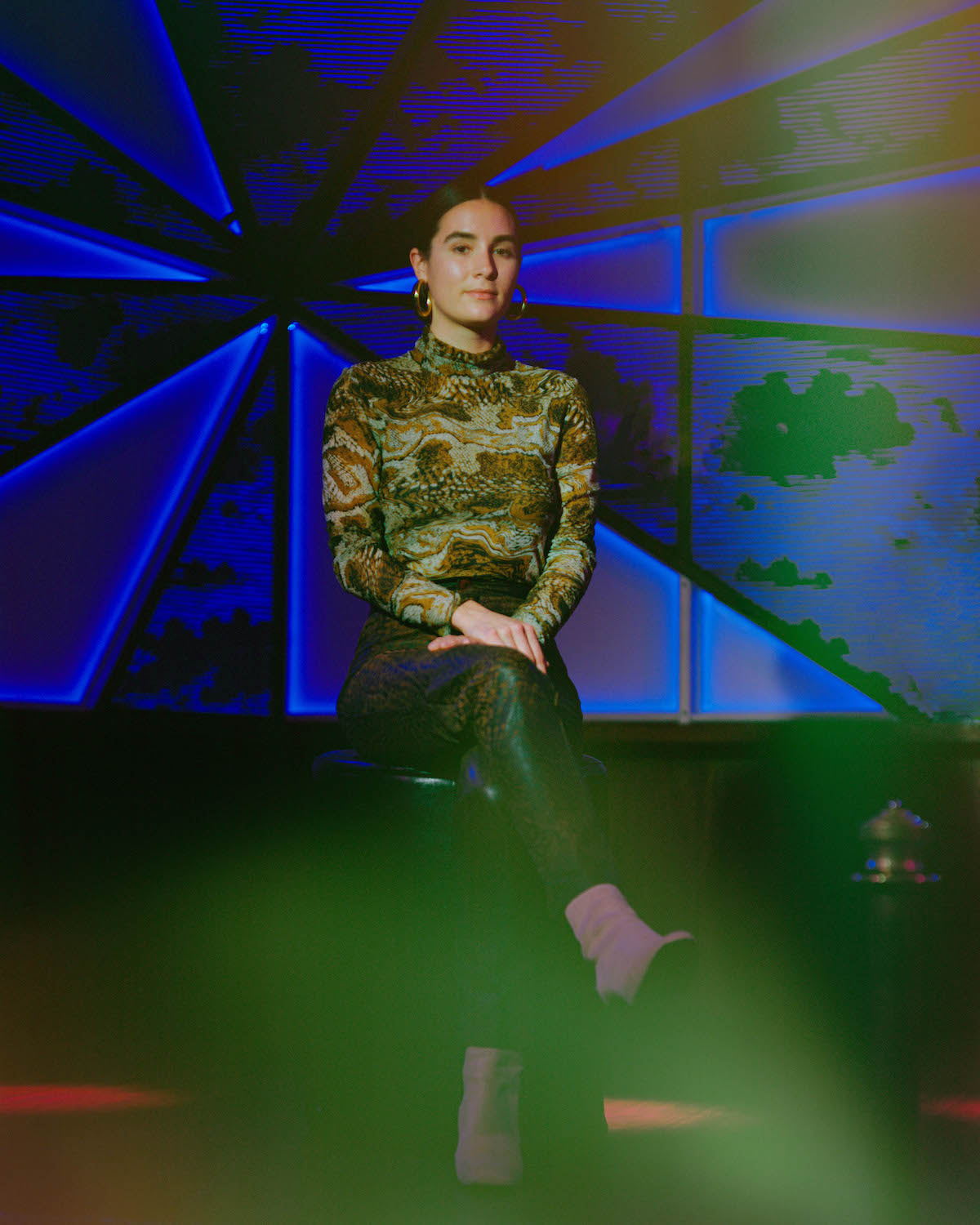
Natalie Manion, General Manager
Turk’s Inn & The Sultan Room
@natalie.manion
How has your role changed since the pandemic?
We have been open on and off since this initial shut down back in March of last year. Initially, I was in charge of managing the night’s events and was available for both artists and guest experience. Since COVID, we have tried to re-envision how nightlife can persist throughout a pandemic. We worked on outdoor rooftop shows, live streams, music video shoots, anything and everything to keep artists creating and our purpose as a venue going. I had never been a part of booking shows before COVID, but during a pandemic when we are running with so few people, you work as a team and wear every hat necessary. During the summer, I was able to start pairing our restaurant experience with Sultan Room shows on our rooftop. The first event I booked was Baby Tea Brunch with Charlene and Tyler Ashley, The Dauphine of Bushwick. It gave me a lot of joy to be able to turn out such a fun event and a much-needed release for people while still creating a safe space to dine.
Have you come across instances of gender inequality while working in venues?
The scales are tipped in favor of men when it comes to live music and nightlife. Men outnumber women and gender minorities in almost every role from the performers, to sound engineers, lighting designers, and who’s running and working the venues. I’m constantly asked, “where’s the manager?” Because of my age, my gender, my size, I am often mistaken as someone who couldn’t possibly be running the show.
At The Sultan Room, we can bring in up to 500 people throughout any given night. We are bound to encounter people who do not share our values. I have been mistreated by artists, managers, guests and so have my staff. We work very hard to vibe check at the door and make sure people coming in are aware of how we do things and what is and isn’t acceptable at our venue as well as lots of correspondence and vetting with DJ’s, bands, and managers ahead of their performances.
Do you feel being in your role at the venue has ever done anything to combat particular instances of gender inequality?
I think any venue that has a person of marginalized gender in a position of power is a great start to combating instances of gender inequality. Hopefully, with us at the helm setting the culture and implementing it day in and day out and living by example, it will help with the cultural shift of normalizing us occupying these spaces in any profession.
We have worked hard to create a culture of celebrating diversity and practicing inclusion and accessibility at The Sultan Room. This really starts with having a great team, which we do! A team from which I am constantly learning from. We communicate a lot. We huddle before every event and debrief at the end of every night. We respect each other’s experiences and ideas. Having that sort of unity and openness helps us to only get better as people and a venue.
It’s important to us to give space, not just physical, to the LGBTQIA+ community and people of color communities. We want people to be able to create a home for their artistry. We were only open for nine months before we had to close due to COVID. It has been a very trying time this last year, especially for venues and artists who don’t know when we will be able to get back to what we love. I have been very proud of us for what we accomplished in a short period of time and am nostalgic looking back at our first year of performers and how truly unique and diverse
our programming has been: performers like Christeene, Bottoms, Susanne Oberbeck of No Bra, Juliana Huxtable, Oshun, Jojo Abot, Naeem, James Blood Ulmer, Habibi and parties like Bushwig, Bae Collective, Joy Party BK (DJ Rimarkable), Peer Pressure, and Disco Tehran.
I think with the effects of this last year and everyone collectively witnessing these disparities across our nation and the world, it will kick start a new era of accountability and support for spaces that are prioritizing doing things the right way.
With staff being laid off and furloughed, we must continue to keep diverse employees of all backgrounds in venues. How do you think this can be prioritized?
For every 50 resumes, I receive, for any position, it’s disproportionately saturated by white men. I think creating accessible avenues for marginalized persons to apply and be seen will be of the utmost importance. The pandemic has exacerbated existing socio-economic disparities in our communities. It’s also disproportionately affected communities of color and marginalized people. For me, recognizing this and ensuring this is a priority for when we begin our hiring process will be the first step. Social media has and will definitely continue to help us reach diverse folx and communities when we reopen as well as relying on our current staff to fold in additional people from their varying communities.
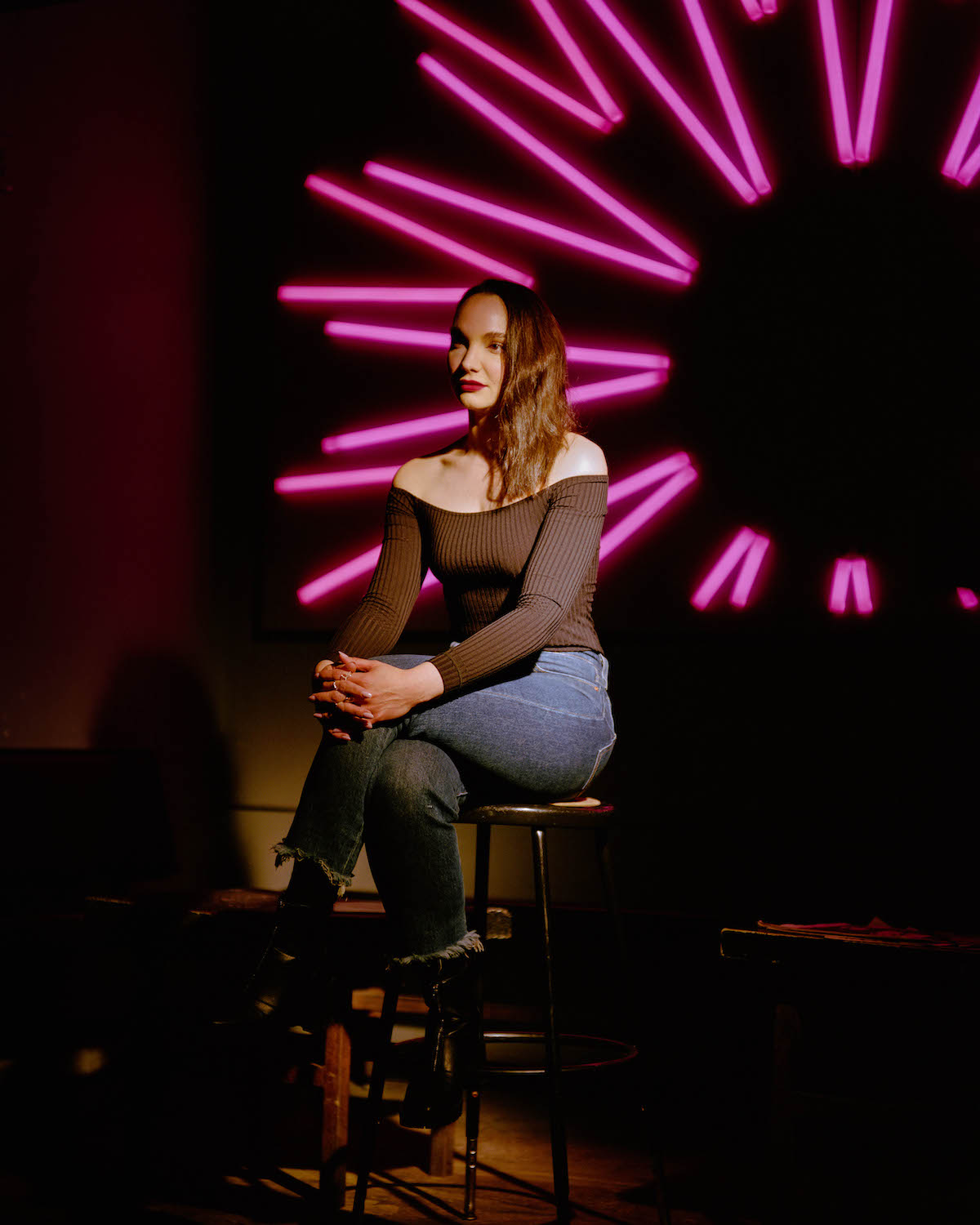
Christiana Bartolini, Resident Booker
Our Wicked Lady
@christiananahh
How did you start working at venues?
I had done the booking for previous bands I was in throughout my 20s and I really enjoyed it so when I moved to NYC in my late 20s, I knew I wanted to get into booking in the local music scene. In 2013, I landed a job at a record label and I also started booking Indie Shuffle Showcases (the music site I write for) at various venues throughout Brooklyn. My co-worker at the record label mentioned his plans to open a bar/venue in Brooklyn (Our Wicked Lady) and I kind of nudged him regularly to let me be their booker. About a year later, shortly before the bar was set to open, he set up a meeting between me and his business partners and we all hit it off. That was in May of 2015, a few months before Our Wicked Lady officially opened.
How has your role changed since the pandemic?
At first, we were closed for a few months, but we’re extremely lucky to have the rooftop space that we have. So in June, we were able to open up our rooftop and sidewalk according to the city’s and state’s new standards. Musicians would show up and play an impromptu acoustic set on our sidewalk which was a new normal of live music that our patrons really appreciated. So my role pretty much dissipated which was to be expected. Now I’m just trying to support the venue in any way I can, as well as spreading the word that we’re taking donations in hopes of opening back up soon.
Have you come across instances of gender inequality while working in venues?
Absolutely. It’s something I’ve seen since I started going to shows in my teens. Most of the people I’d work with were male-identifying. Through the years that I’ve been booking and playing at venues, it became obvious to me very quickly that if the venue isn’t putting in a concerted effort to focus on the gender inequality that shows up in their programming and staffing, then gender inequality would be the norm at that establishment, inadvertent or not. In order to offset that, the effort to level the playing field needed to always be at the forefront of the establishment’s decisions and culture. I’m super fortunate to be a part of Our Wicked Lady’s team where there’s deliberate space for inclusion across the board.
It’s been almost a year since we’ve stepped inside venues and besides the Burger Records reckoning this past summer, we’ve been removed from gender inequality at face value in some ways. When we begin to have live shows again, these problems obviously won’t immediately disappear, but how do you think this time away will or has affected things?
There will be an undeniable eagerness from everyone to start playing live shows again. And as exciting as that will be, I think it’s going to be imperative to ensure the lineups we book aren’t just one type of demographic or one type of genre. Since it’s going to be easier to build lineups simply because of the demand, I think we’ll have to be more mindful than ever of what we’re saying yes to. If we have a lineup of all cis white hetero male musicians, should we balance that out by adding more female/other identifying people to the lineup? Or do we book a whole female/other identifying lineup the next night instead? I think the options will be overwhelming which is why when we all get back to booking and participating in shows, we’ll have to walk, not run. As far as being informed of people in the music community who are not good for our community, and the possibility that we may have not been in the loop of any unacceptable happenings since we’ve all been isolated, it’s our responsibility to communicate with each other (not gossip) and maintain safe spaces for these stories to be heard so we can make educated decisions in order to keep our establishments safe and healthy. I’d hope that even when things open back up and booking takes off, everyone’s integrity will still be intact.
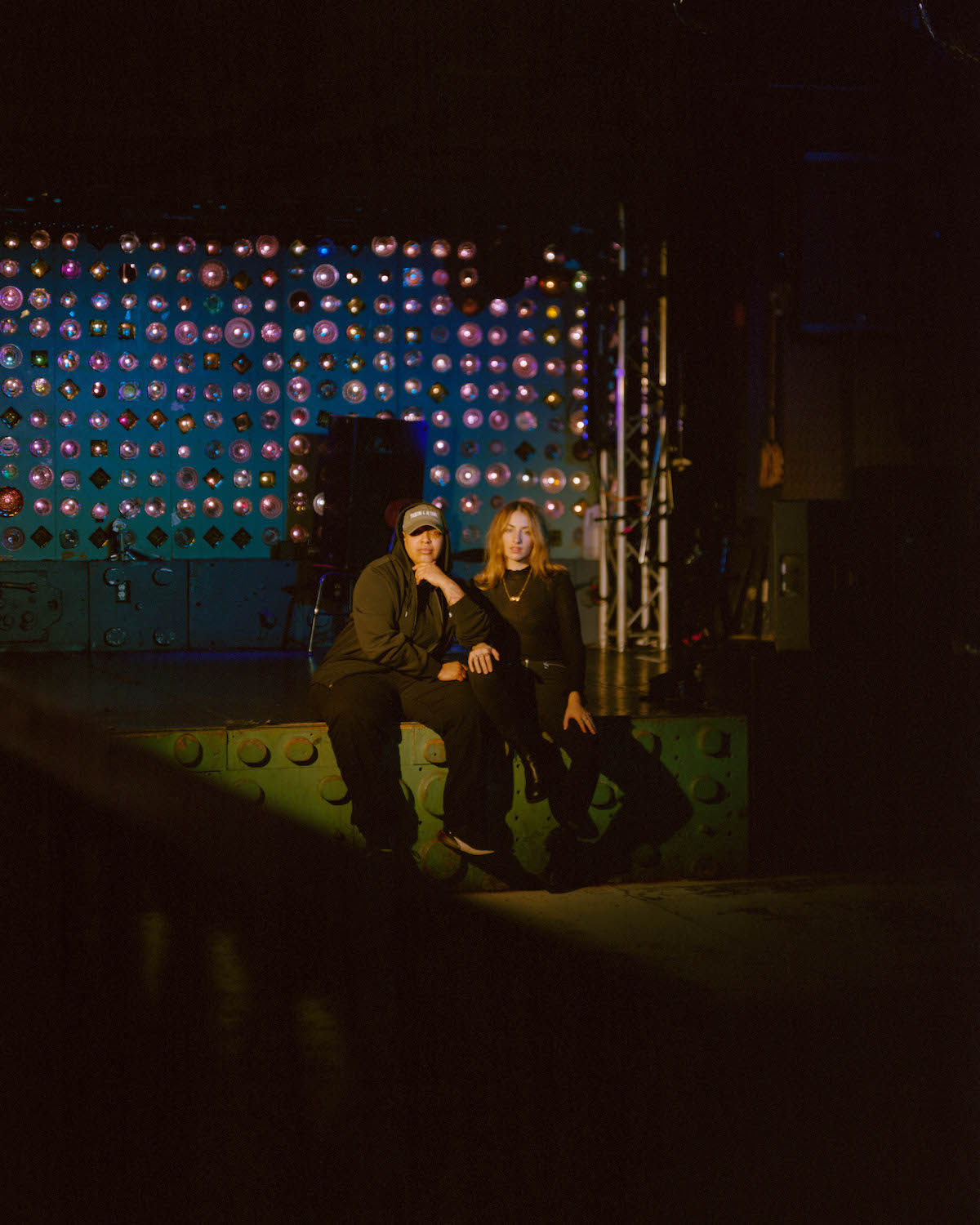
Ana Guzman, Head of Security
Baby’s All Right
@guz_ana_
How did you start working at venues?
I started working at venues back in 2009-2010 at Santos Party House, before that I was working nightclubs.
How has your role changed since the pandemic?
Since all venues are closed due to the pandemic, my role changed from the head of security to unemployed. During this time I’m taking some online courses and being a parent by taking care of my godson. I’m also taking the necessary steps to renew my security company license.
Do you feel being in your role at the venue has ever done anything to combat particular instances of gender inequality?
Yes, I believe my role at the venue has combat particular instances of gender inequality. In a predominantly male field, I have given females a platform where they can be in power and have equal pay and opportunity for growth.
With staff being laid off and furloughed, we must continue to keep diverse employees of all backgrounds in venues. How do you think this can be prioritized?
Keeping diverse employees in venues can be prioritized by being more inclusive when hiring. The venue owners have to make sure the person in charge of hiring has fostered respect, understanding and awareness of all different cultures, race, gender, and their diverse backgrounds and/or sexuality before they’re allowed to hire anyone.
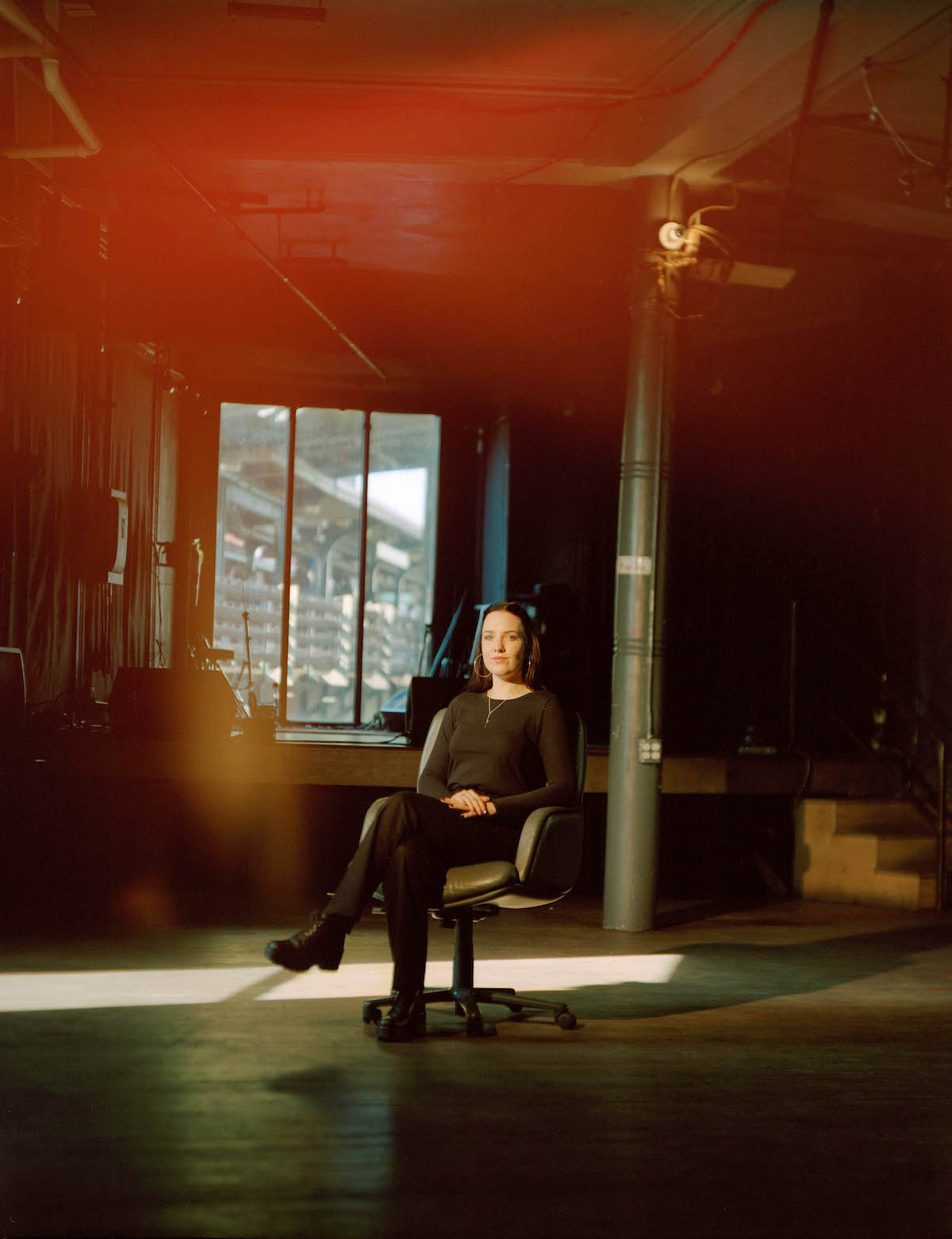
Mandy Brownholtz, Director of Marketing
Market Hotel and Trans-Pecos
@mandybrownholtz
How did you start working at venues?
My first venue job was working in the kitchen at the 9:30 Club in Washington D.C., where I did artist hospitality. From there I moved up to the box office and eventually the marketing team.
How has your role changed since the pandemic?
It doesn’t exist anymore. I still handle marketing for the music blog Audiofemme, but all my work in live music has dried up from the pandemic.
Have you ever come across instances of gender inequality while working in venues?
Absolutely. From blatant sexual harassment when I worked more night-of, in-venue roles (i.e. unwelcome touching and comments about my appearance) to more insidious professional sexism, like being interrupted in meetings and that thing men do when they repeat an idea you just said back to you and everyone acts like they came up with the idea. I also feel compelled not to speak up about things for fear of being labeled somehow difficult or a pain to work with.
It’s been almost a year since we’ve stepped inside venues and besides the Burger Records reckoning this past summer, we’ve been removed from gender inequality in the music industry at face value in some ways. When we begin to have live shows again, these problems obviously won’t immediately disappear, but how do you think this time away will or has affected things?
I’m hopeful that the time away will help people re-evaluate priorities. It seems like the time away from live performance has forced people to create out of a need to fulfil their passions, rather than a money-making point of view. While profit will reign supreme again once the live music industry is back up and running, I hope that this purity of sorts influences how people carry themselves.
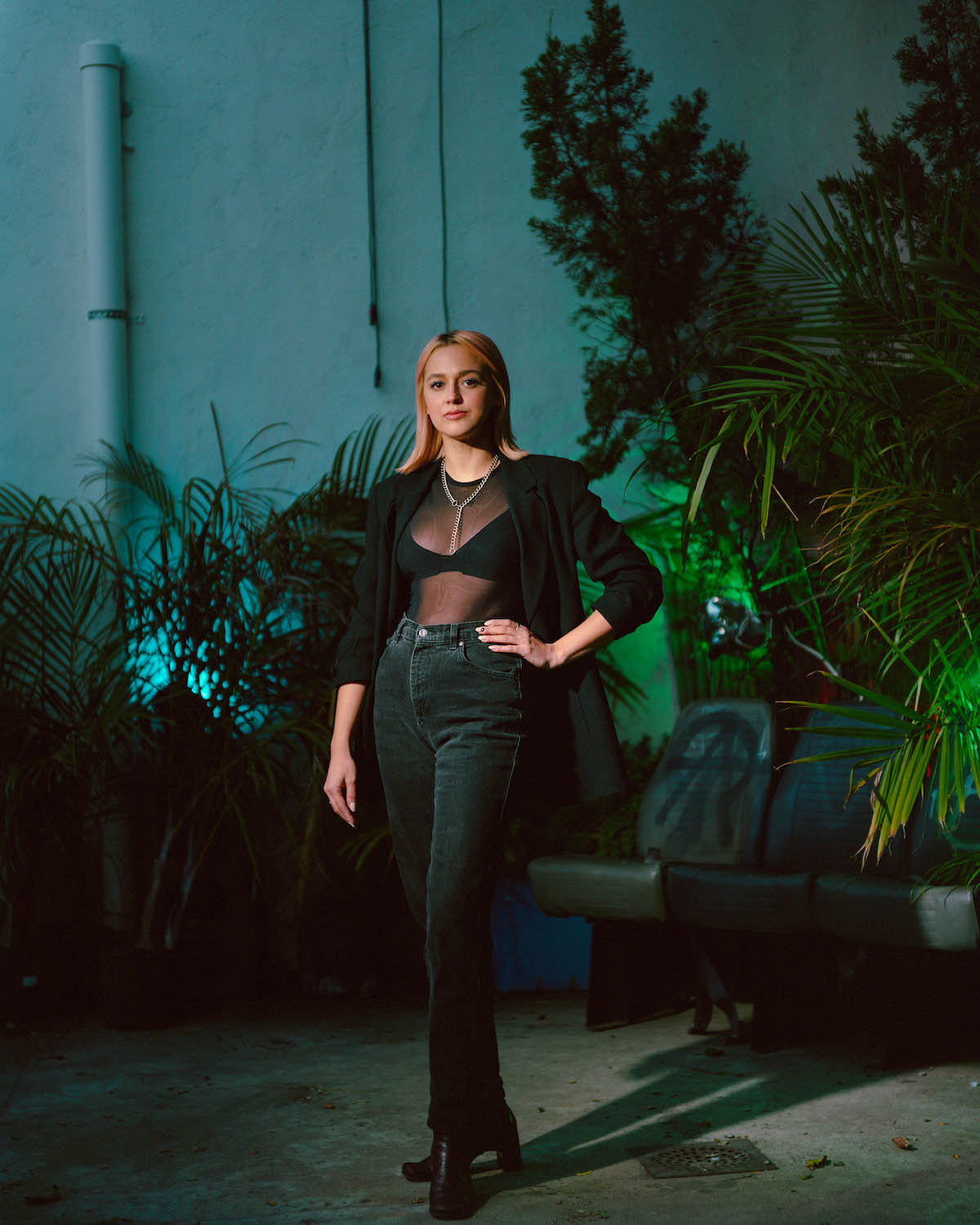
Lindsey Gardner, Production & Programming Manager
Trans Pecos
@lindseymgardner
How has your role changed since the pandemic?
Well, the bar/venue has closed for the season and I’m back to film/photo production so I suppose my role is no more! Our covid iteration of the venue was very different from its full time, pre-Covid world, so that chapter may be closed.
Have you ever come across instances of gender inequality while working in venues?
Of course. First off, I will say it always makes me laugh/roll my eyes to be considered a “woman in music” instead of just a “person in music.” However, with that label attached, there’s a certain joy to being underestimated on a large scale and proving people so very wrong. But that aside…
From a woman’s perspective….you notice women/femmes being spoken over in meetings, see their ideas ignored or stolen without proper credit, and in terms of something as serious as accountability for abuse, the onus of proof often falls on the victim rather than the abuser. I reference the last example from personal experience working at a “progressive and inclusive” venue in Brooklyn.
Gender inequality happens in every pocket of the world, but music tends to be gatekept by a majority of cis-white-male figureheads. That’s not to say some aren’t truly amazing at what they do and have worked hard for their place, however, the inequality is WILD considering how music is possibly the most diverse world of art.
But the more we discuss these issues and shine a light on them, the less they occur. I’m really proud of all my fellow women/femmes who have been speaking out about injustices they’ve experienced over the past few years. I’m grateful that we’re moving past the time where these behaviors were simply accepted as the norm.
Do you feel being in your role at the venue has ever done anything to combat particular instances of gender inequality?
I’ve been lucky enough to work with a lot of powerful women in this industry and from day one have been taught to speak up and aggressively pursue what I believe in. I’ve openly addressed issues of inequality in a few workplaces, even as a freelancer on the outskirts of a tight-knit team. I’ve also been the first woman on many all-male teams and have been the first to call some out on their sexist behavior and patterns. Some are appreciative and grateful to learn, while others can be intimidated by powerful women. Holding our ground and refusing to compromise hopefully allows more room for fairness and equality in the future.
I’m always happy to speak up on these issues but ultimately it shouldn’t be our responsibility when men are fully aware and should be responsible for their own growth in this regard.

Meghan O’Connor, Production Coordinator
House of Yes
@meghano_o_o
How has your role changed since the pandemic?
My role is on hold until we can have IRL events again. I think all of us in the live entertainment space can’t wait to get back to it when it’s safe to do so.
It’s been almost a year since we’ve stepped inside venues and besides the Burger Records reckoning this past summer, we’ve been removed from gender inequality at face value in some ways. When we begin to have live shows again, these problems obviously won’t immediately disappear, but how do you think this time away will or has affected things?
I think for a lot of people, this time away from the daily insanity of event production has allowed us a much-needed break to reassess our priorities, not just as venues but as human beings. I think when we come back, we may very well see people standing up for their own emotional well-being in the workplace on a level just as important as professional well-being. Mental health has always been a major issue for our industry and while organizations like Backline have made great strides in opening up the conversation, I think we are all more mentally vulnerable than ever before. I think the hope is that we all understand better than ever before than we aren’t just coworkers – we are each other’s support group, and each other’s family. We’ve all been through a collective trauma, and just maybe that can help us all to understand that we are and should always be considered equal regardless of gender, sexual expression, race, or any other factor that has been used to categorize us as unequal before.
With staff being laid off and furloughed, we must continue to keep diverse employees of all backgrounds in venues. How do you think this can be prioritized?
I think it will be imperative that before and at every event, venues ask themselves a few questions. Is there someone on our team who would have insight into the voices being expressed in this event? Are there gaps in perspective? If there are gaps, what can we do to fill them? Our venues are our communities, and they should be representative of that. The past year has demonstrated more than ever that art is important, and so much important art is going to come out of this horrible time. We should be representing our communities not just in the art we support, but in the people who have the power to choose what art needs to be supported and given a voice. That just can’t be done effectively without having an inclusive team that reflects the diversity of voices in our communities. We need each other, and we as a society are finally starting to have mainstream conversations about just how much it means for people to see themselves reflected in all aspects of life, and that sentiment absolutely extends to our industry as well. There is enough space for everyone if we put our priorities in the right place. Hopefully, this time has allowed people to slow down and reassess what’s really important, and the legacy we want to leave behind for the next generation of artists and creators. If they can stand on our shoulders, our industry could become a very different space, and I’d like to do my best to be a part of making that happen.
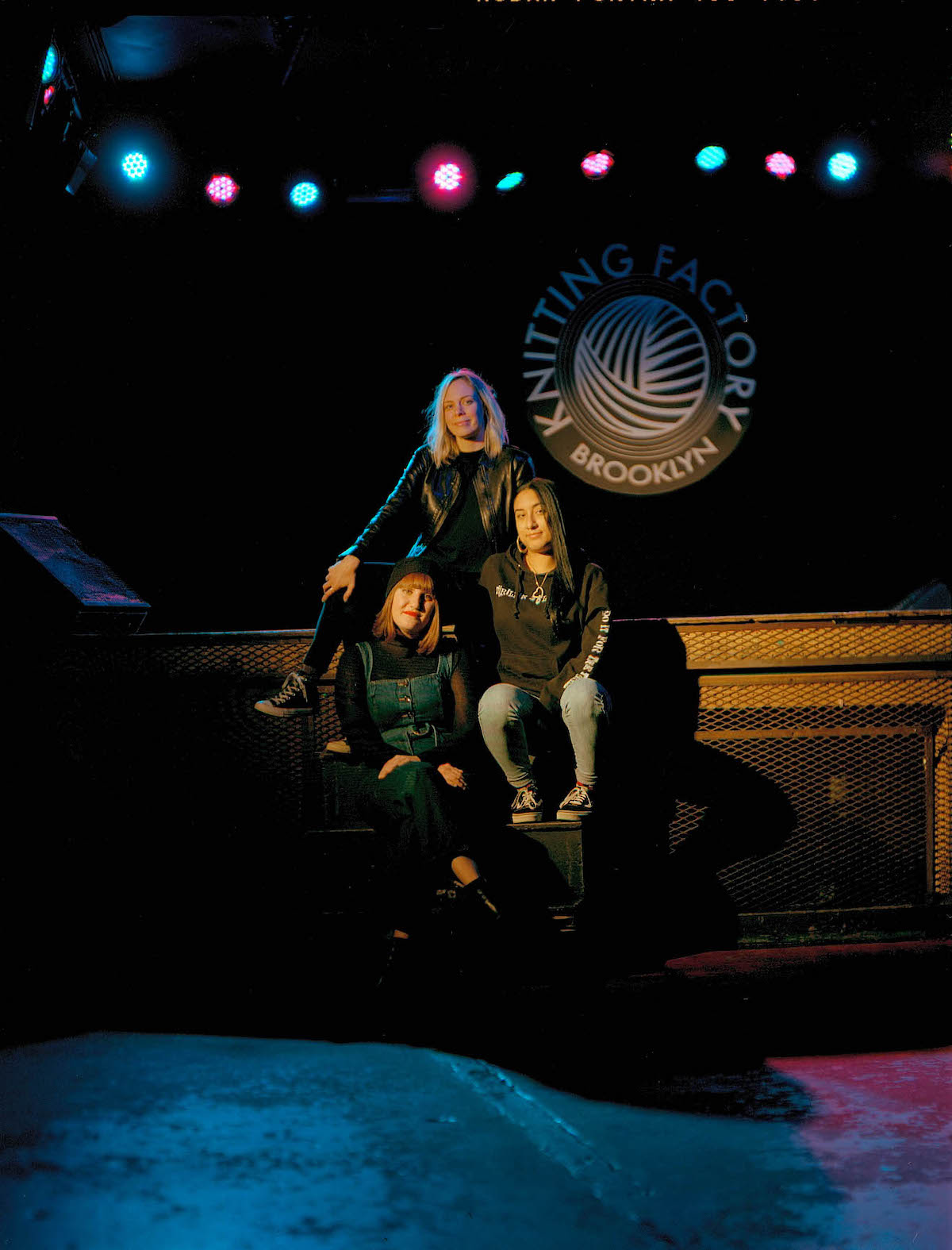
Tiana Lopez, General Manager
The Knitting Factory
@mstiana
How did you start working at venues?
I started as a coat check girl at Output BK and was hooked on working events and the nightlife. I progressed from there.
How has your role changed since the pandemic?
I was given the General Manager position after Laura left which was right before the pandemic hit us, but I haven’t done much “general managing” since we shut down.
Have you ever come across instances of gender inequality while working in venues?
Being a Latina female, I get a lot of “you’re not the manager” from customers as they look at me up and down. I have been blessed to work with great managers and staff that have appreciated me for the way I work.
Check out Rachel’s website for the full feature.